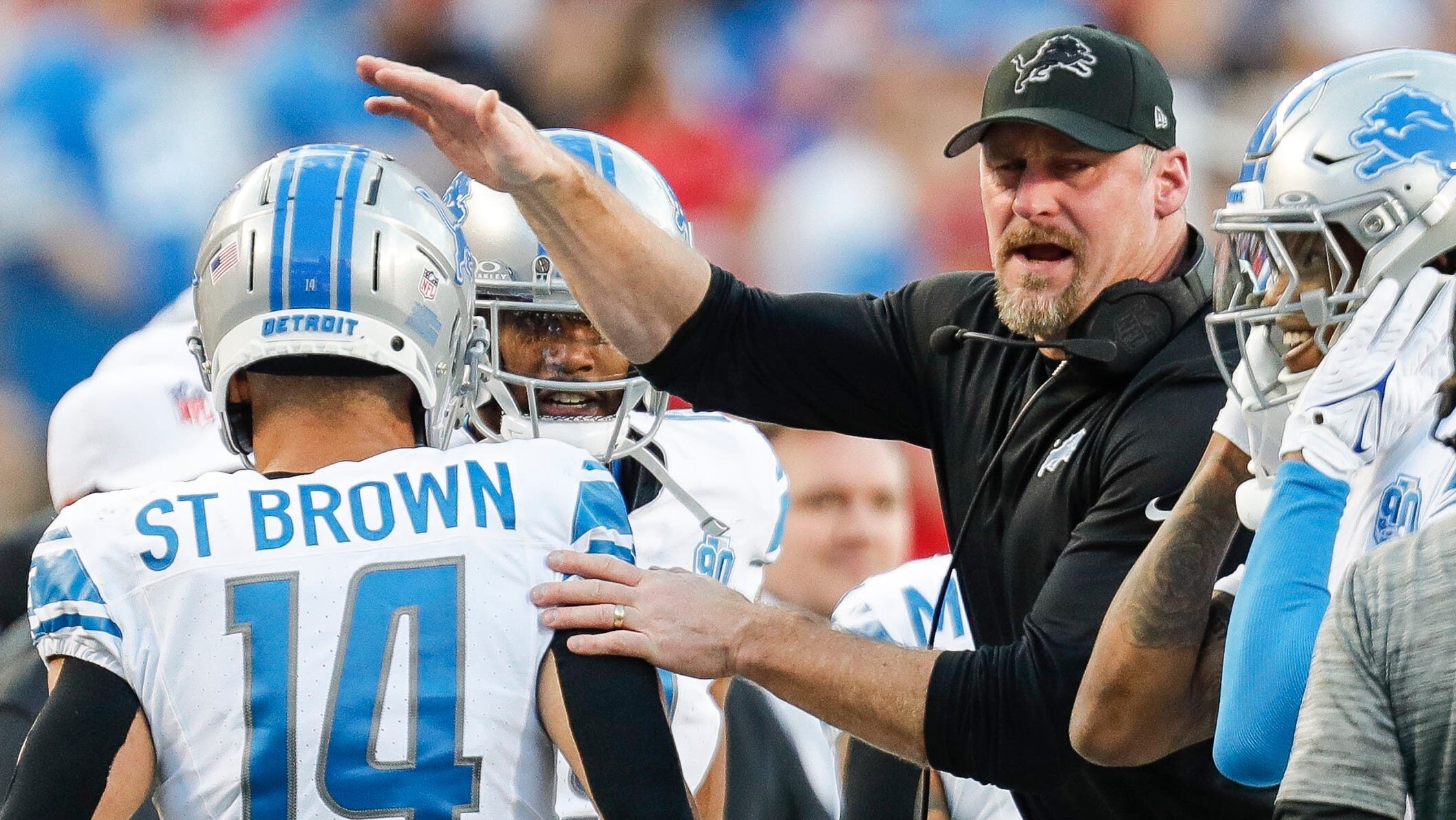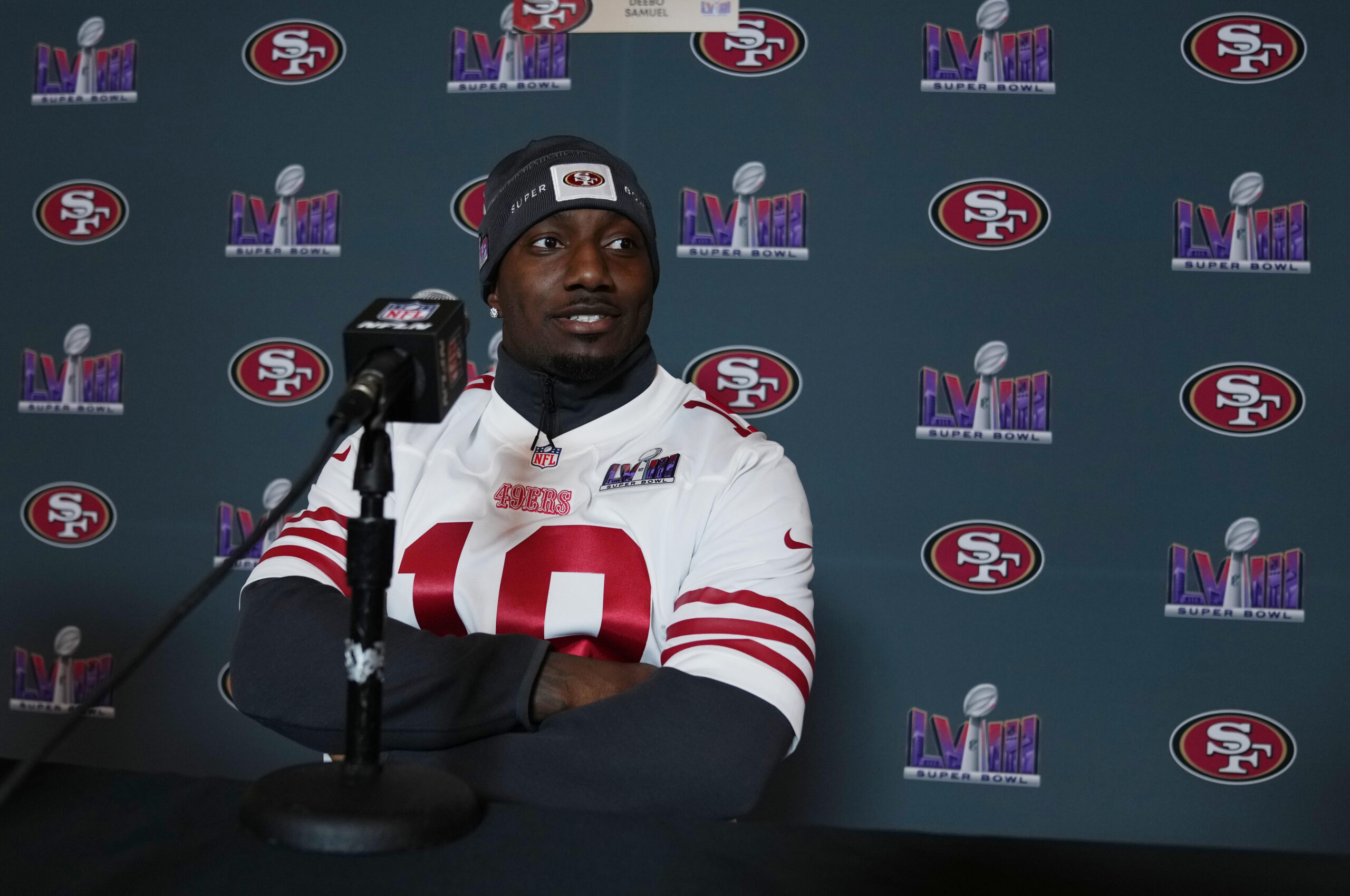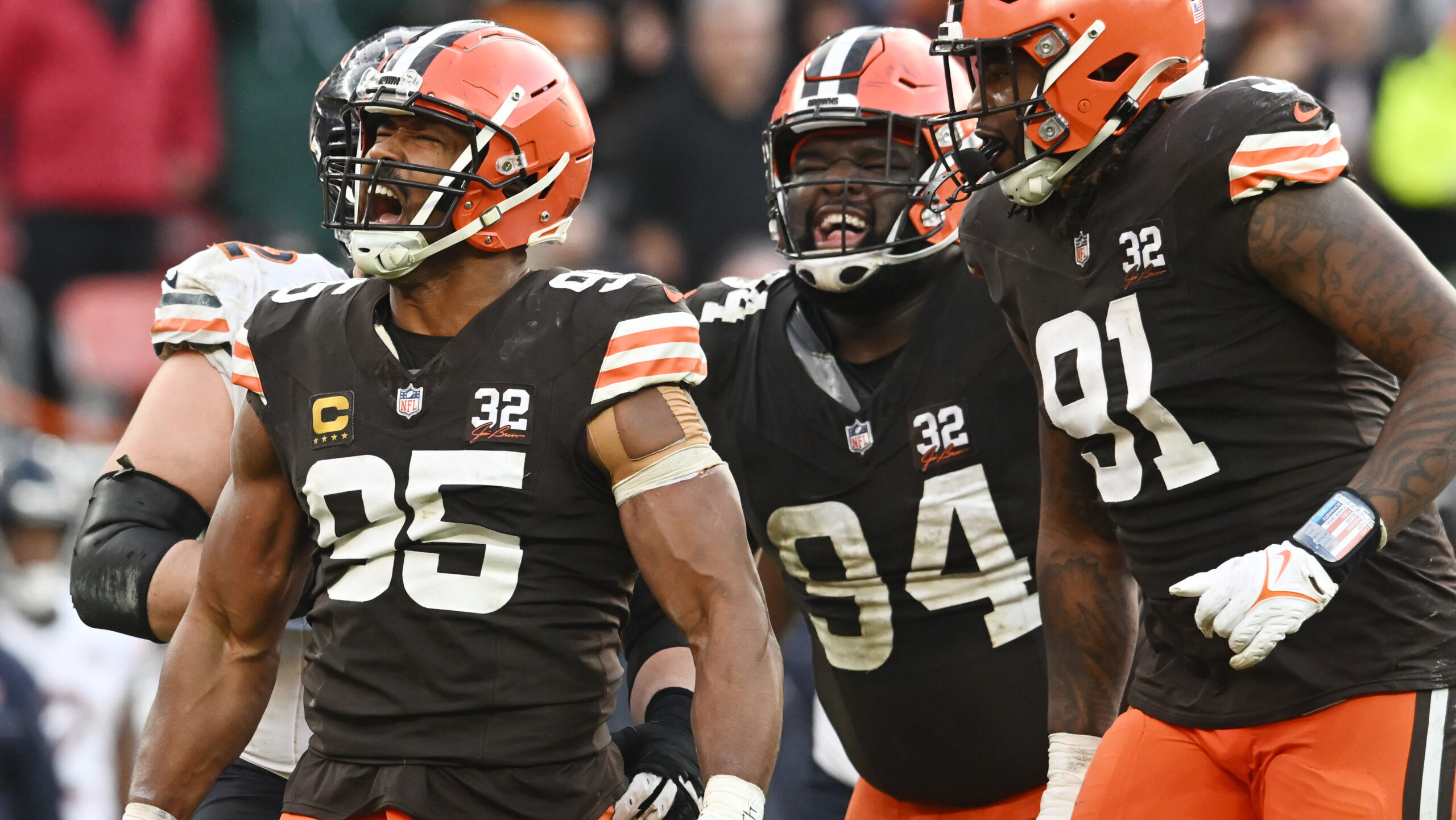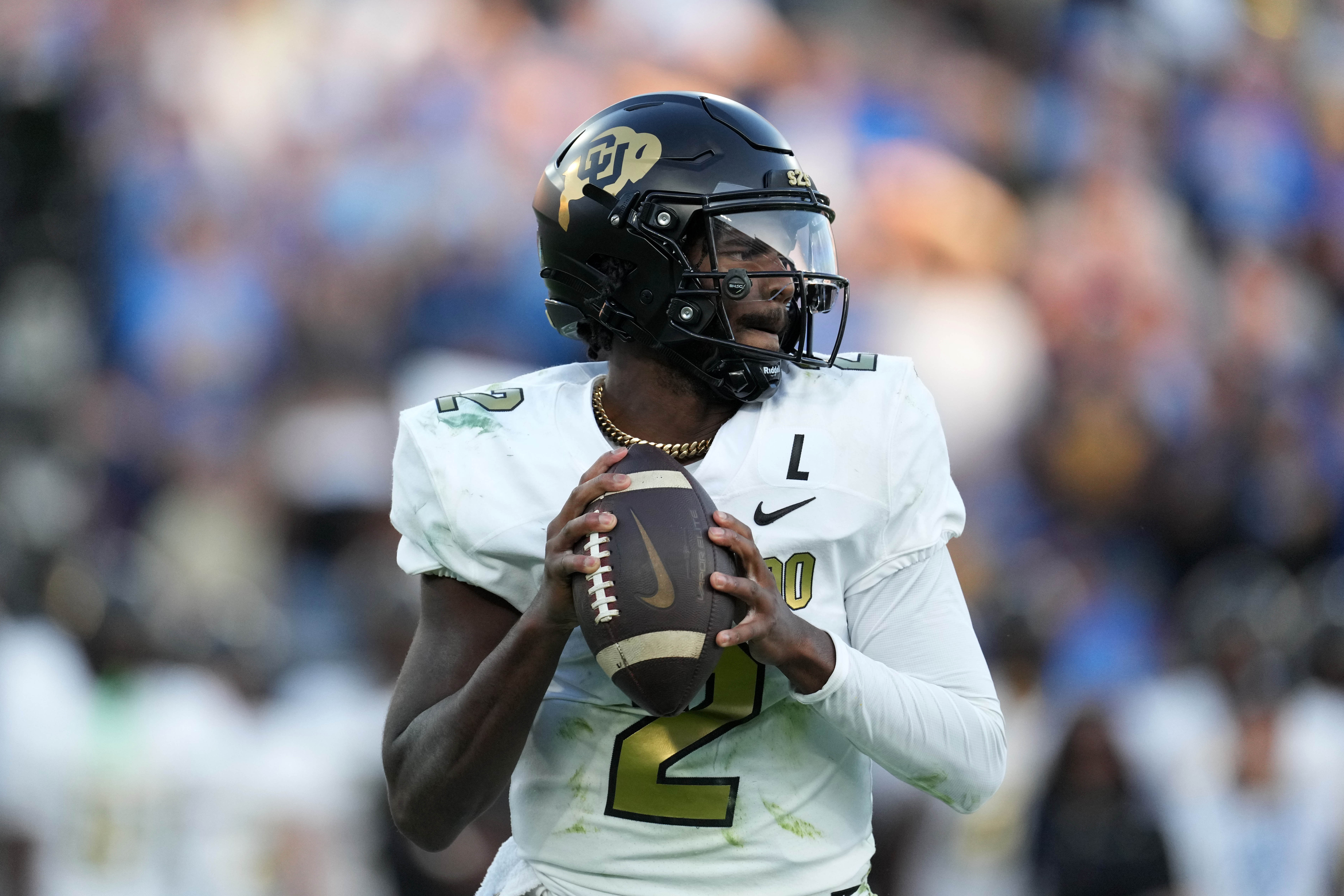NFL Analysis
2/26/24
6 min read
Brock Bowers Is Rare NFL TE Prospect, But Should He Go Top 10?
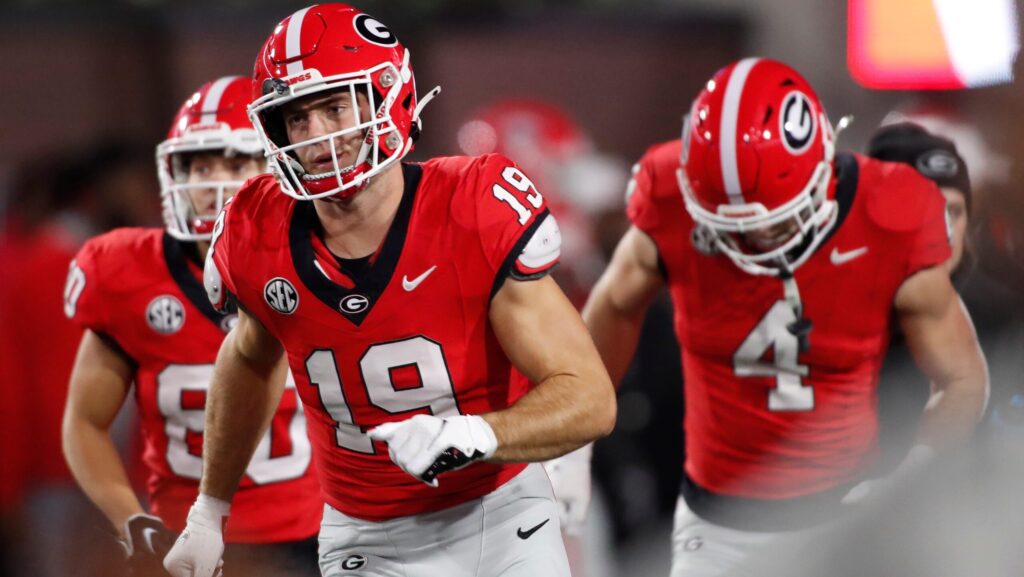
The discussion around first-round tight ends is the same every draft cycle. One camp believes the position is not valuable enough and too difficult to project to take in the first round, while the other camp believes you simply draft the best players and figure it out.
Around and around we go, every spring, having the same conversations about T.J. Hockenson, Kyle Pitts and Dalton Kincaid. It only gets worse when the player has a chance to go in the top 10.
Both the tight end believers and their detractors are right in some respects.
It is true that tight ends are typically more challenging to project into the league than other positions. Tight ends are effectively two positions in one. They're quasi-tackles and quasi-receivers. For that reason, tight ends often take a year or two to find their stride in the league. It's one of the toughest positions to step in right away and produce, up there with quarterback, offensive tackle and linebacker.
At the same time, the value of an upper-echelon tight end is immense. Think about what Travis Kelce, George Kittle and Mark Andrews do for their offenses. The same was true for Pitts as a rookie before injuries got in the way or Sam LaPorta as a rookie this season. Truly game-changing tight ends present a unique blend of size and athletic ability that most defenses aren't equipped to deal with. Finding one of those players unlocks a rare offensive advantage.
The answer to which side of the debate you fall on comes down to whether you're scared off by previously "overdrafted" tight ends and the traditionally steep learning curve. Or if you have the gumption to roll the dice on a potential rare asset in a pass-first league.
>>READ MORE: Latest 2024 NFL Mock Draft
Checking Every Box
Enter Brock Bowers, the center of this year's tight end debate.
Aside from prototypical size, Bowers checks almost every box for an elite tight end prospect. The length, athleticism and run after catch ability are all there, not to mention Bowers was unbelievably productive at the college level. Bowers is everything a coach could want in a modern tight end.
Brock Bowers everyone.
— Georgia Football (@GeorgiaFootball) September 30, 2023
pic.twitter.com/PyOiEVAwkT
Production is a good place to start with Bowers. A true junior, Bowers spent three years with Georgia. Bowers cleared at least 50 receptions and 700 yards each season, including his true freshman season. Moreover, Bowers led the Bulldogs in receiving all three years. That's bonkers for a tight end by itself, never mind that Bowers was beating out future NFL wide receivers such as Jermaine Burton and Ladd McConkey to do so.
A Weapon With the Ball
Hell, Bowers was even a weapon on the ground. The Bulldogs didn't use Bowers as a true running back, but they cooked up a half-dozen gadget plays for him a year. Those plays were especially prevalent in the red zone. Bowers finished his college career with five rushing touchdowns. Good luck finding other tight end prospects who offer that.
It's no surprise how Bowers compiled those numbers when you turn on the tape. Bowers makes up for what he lacks in bulk with outrageous athletic ability.
Bowers is as nimble and crafty as he is powerful and physical. Bowers can make people miss in space as easily as he can run through their tackle attempts. When Bowers gets a fraction of space in the open field, he can hit top gear in an instant and destroy potential tackling angles. He explodes into hyperspeed and zips past defenses with the kind of speed you rarely see from tight ends.
The George Kittle comparisons aren't perfect, but if there's anywhere you can see it, it's when Bowers has the ball in his hands.
Bowers is plenty refined before the catch, too. Whether he's on the line, off the line or split out wide, Bowers is a devilish route-runner. His speed and agility do the heavy lifting, but Bowers' game has a subtle physicality that puts him over the top — a skill enabled by his pterodactyl wingspan. Bowers can get open at will while possessing the length to create late separation and extend for the ball even when he isn't actually open.
THIS CATCH FROM BROCK BOWERS 🔥🔥 pic.twitter.com/Bf6FAvlz2e
— SEC Network (@SECNetwork) September 17, 2022
What About Blocking?
A common criticism of these modern, do-it-all receiving tight ends is that they can not block from an in-line position. Look across the league and you will find these guys everywhere, ranging from Chigoziem Okonkwo to Kincaid and LaPorta. Some of the league's best pass-catching tight ends are negatives in the run game, at least in the traditional sense.
Teams are getting better about getting the most out of these players as blockers, though. Kincaid and LaPorta are perfect examples. They're getting blown up if you line either of them up as the Y on the line of scrimmage. But if you can move them around on pulling plays, as the slice player on split zone or as the lead blocker on iso, they become much more useful. Those kinds of blocks do more to feature their athleticism and get them blocking similar body types instead of forcing them to handle 275-pound defensive ends head-on.
That's part of the calculus with Bowers. Granted, Bowers is a sturdy run blocker for 240 pounds anyway, but he is just 240 pounds after all. The fact that teams are getting more creative with working around having leaner body types at tight end mitigates the most significant concern with Bowers.
-
Latest NFL Draft Big Board
The Super Bowl is over and the 2024 NFL Draft draws closer by the day.…
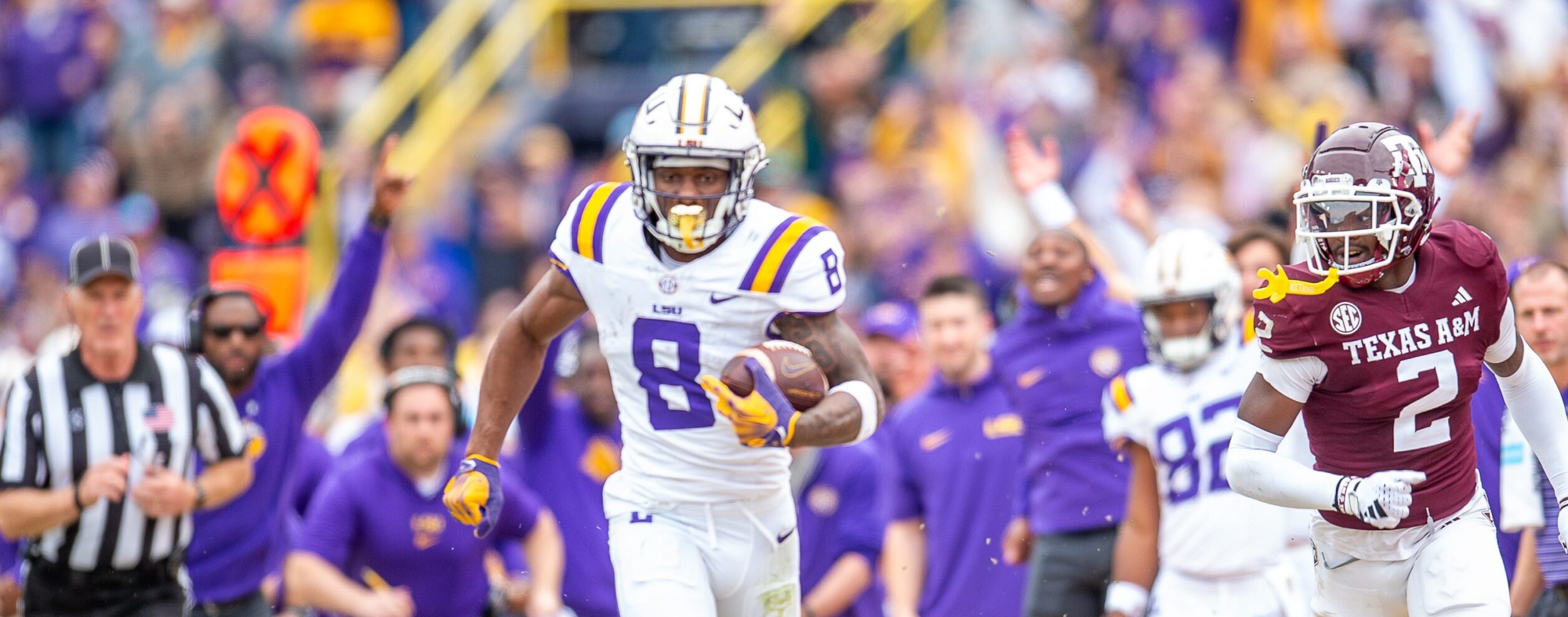
-
Biggest Combine Risers of Last Decade
The NFL Combine wipes the slate clean for NFL prospects. It's a place where film…
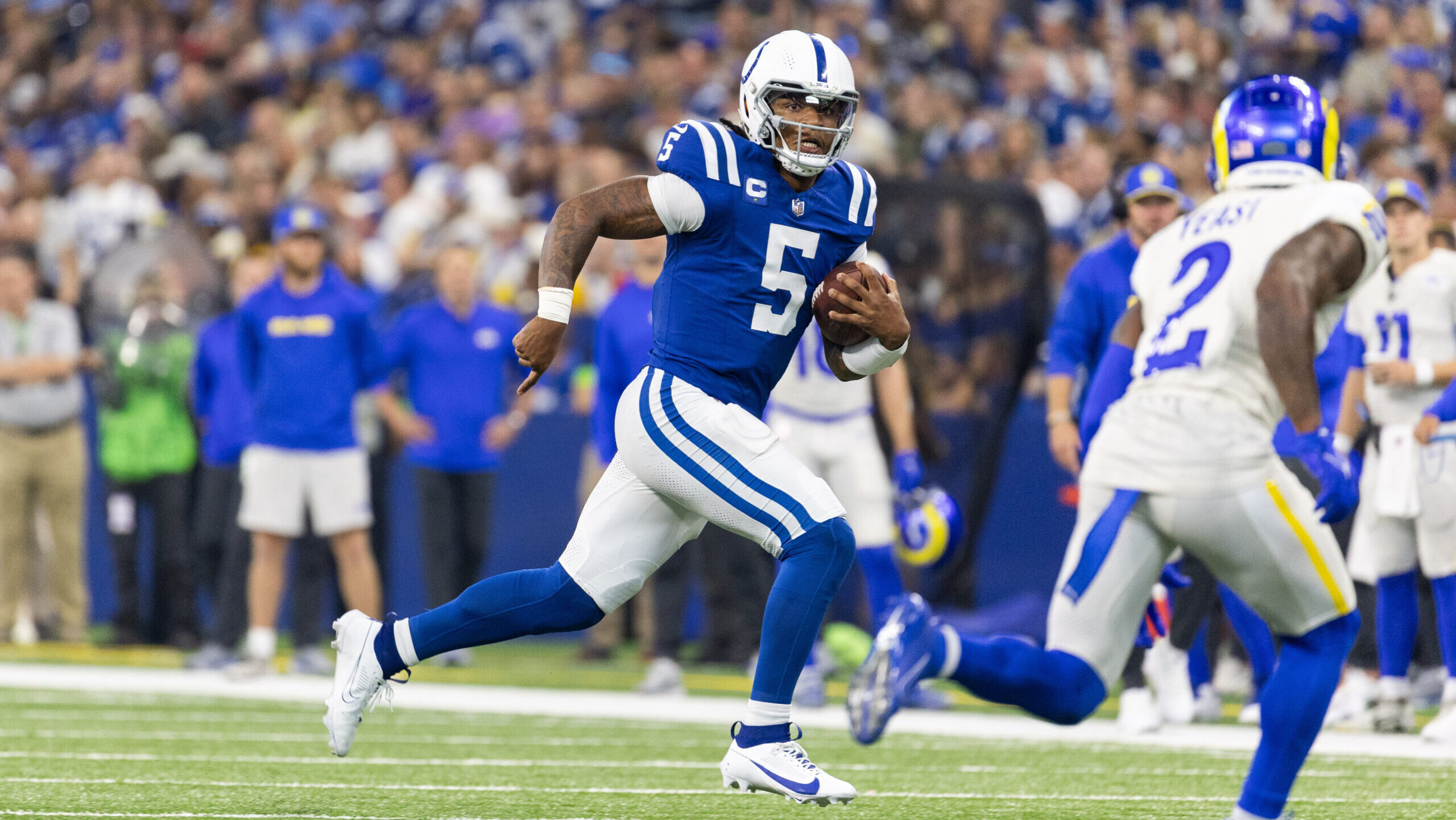
-
Players Poised for Elite Combine Performances
The NFL Combine takes place next week, and all the best athletes will be on…
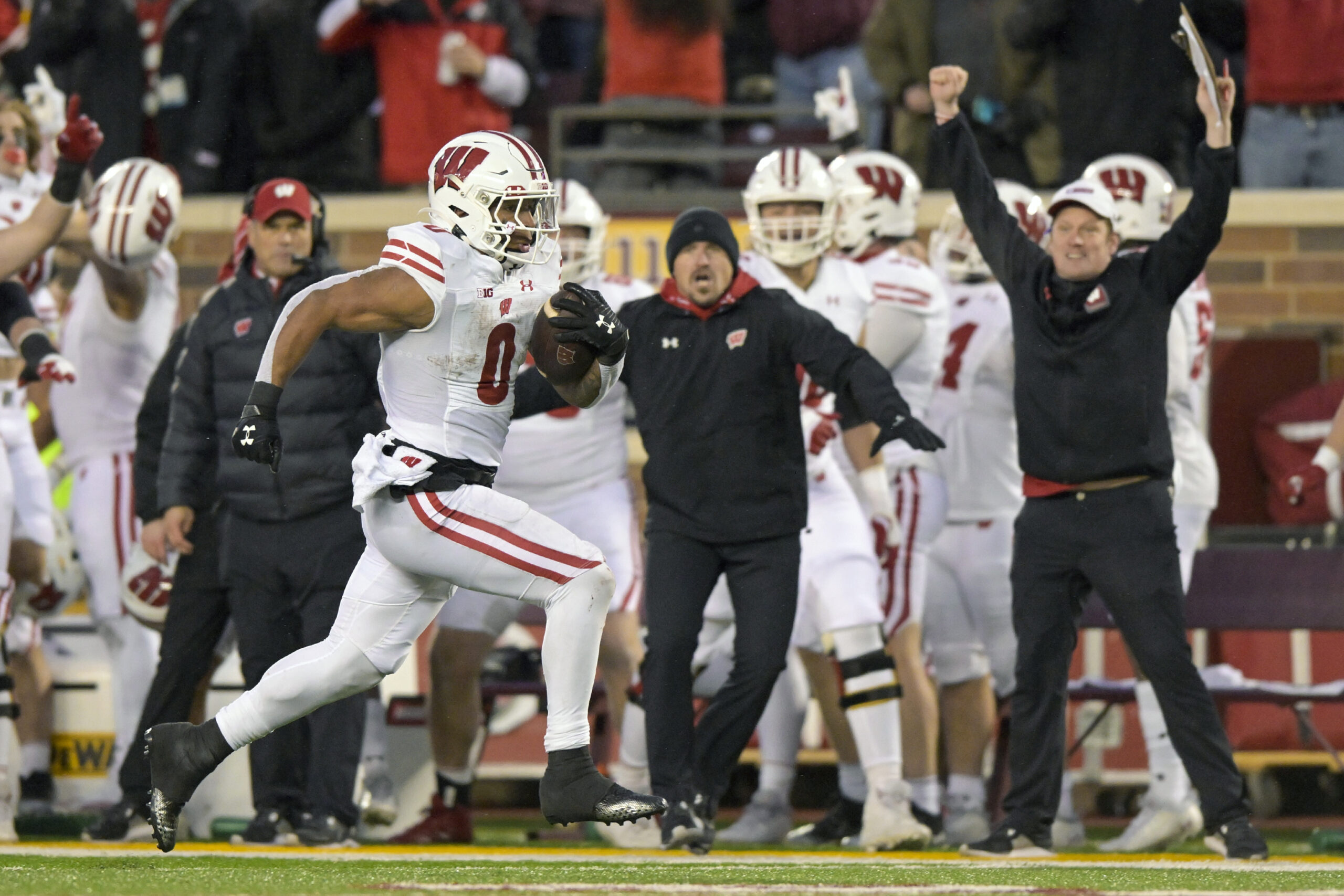
a Ceiling in Outer Space
There aren't many holes to poke in Bowers' game. In an ideal world, he would be 10 pounds heavier and a little stronger, but that's it. Those size and strength shortcomings rarely hurt him anyway. Everything about Bowers' tape and production profile suggest he's a player with a high floor and a ceiling somewhere in outer space.
Bowers shouldn't just be a first-round pick. He should go in the top 10.
There are not more than a small handful of better prospects than him in this class. The inherent value in quarterbacks and offensive tackles will probably mean Bowers gets bumped down the board a smidgen, but not too far.
Players with Bowers' abundance of talent don't fall very far, regardless of whatever you want to say about positional value. The first and foremost priority for any draft approach is to get the best players, and Bowers is one of the best this class has to offer.




